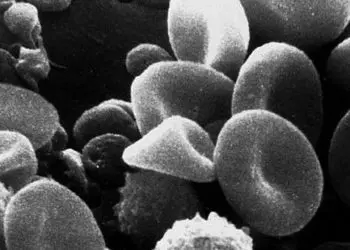Sodium-glucose cotransporter-2 inhibitors and glucagon-like peptide-1 receptor agonists improve diabetes outcomes but are not cost effective
1. For sodium-glucose cotransporter-2 (SGLT2) inhibitors and glucagon-like peptide-1 (GLP1) receptor agonists to be used as first-line agents for type 2 diabetes, their costs would need to fall by at least 70%.
2. Patients who were given SGLT2 inhibitors and GLP1 receptor agonists as first-line agents for type 2 diabetes had lower lifetime rates of serious cardiovascular events compared to those taking metformin.
Evidence Rating Level: 1 (Excellent)
Study Rundown: Costs of type 2 diabetes treatment in the United States have increased from $174 billion in 2007 to currently more than $327 billion annually. This increase in cost is partially due to the prescription of SGLT2 inhibitors and GLP1 receptor agonists for these patients. While large randomized control trials of SGLT2 inhibitors and GLP1 receptor agonists have shown improvements in glycated hemoglobin (HbA1c) levels and in mitigating cardiovascular risk factors, they are currently recommended only as second-line therapy. First-line therapies for patients with type 2 diabetes without atherosclerotic cardiovascular disease (ASVCT) are lifestyle interventions and metformin. However, there is a gap in knowledge as to understanding the tradeoffs between the clinical benefits of SGLT2 inhibitors and GLP1 receptor agonists and their high cost in the United States. Overall, this study found that SGLT2 inhibitors and GLP1 receptor agonists can serve as effective first-line agents for the management of type 2 diabetes, but they are not cost-effective at their current prices. This study was limited by potentially an artificial increase in costs associated with macrovascular complications, as well as limited heart failure history and incomplete demographic data in a sample of participants. Nevertheless, these findings are significant, as they demonstrate that SGLT2 inhibitors and GLP1 receptor agonists are currently not cost-effective as first-line agents for the management of type 2 diabetes despite their treatment efficacy.
Click to read the study in AIM
Relevant Reading: Sodium–Glucose Cotransporter-2 Inhibitors Versus Glucagon-like Peptide-1 Receptor Agonists and the Risk for Cardiovascular Outcomes in Routine Care Patients With Diabetes Across Categories of Cardiovascular Disease
In-Depth [cost-effectiveness study]: This cost-effectiveness study utilized an individual patient-level Monte Carlo-based Markov model to simulate the lifetime incidence, prevalence, mortality, and costs associated with a United States representative population with type 2 diabetes not being treated with diabetic medications. A nationally representative sample of persons with diabetes was created from participants who self-reported diabetes or had HbA1c of more than 6.5% within the National Health and Nutrition Examination Survey (NHANES) from 2013 to 2016. Patients with suspected autoimmune diabetes were excluded from the study. The primary outcome measured was life expectancy, lifetime costs, and incremental cost-effectiveness ratios (ICERs). Outcomes in the primary analysis were assessed via threshold analysis, as well as one-way deterministic sensitivity analyses. Based on the primary analysis, first-line SGLT2 inhibitors and GLP1 receptor agonists had lower lifetime rates of congestive heart failure, ischemic heart disease, myocardial infarction, and stroke compared with metformin. Additionally, first-line SGLT2 inhibitors cost $43,000 more and added 1.8 quality-adjusted months versus first-line metformin ($478,000 per quality-adjusted life year (QALY)). First-line injectable GLP1 receptor agonists cost more and shortened QALY and were thus inferior to metformin. SGLT2 inhibitors or GLP1 receptor agonists increased undiscounted life expectancy by 3.0 months and 3.4 months respectively, versus first-line metformin. Overall, this study demonstrates that SGLT2 inhibitors and GLP1 receptor agonists would improve type 2 diabetes outcomes as first-line agents but are currently not cost-effective and their costs would need to fall by at least 70% to be cost-effective.
Image: PD
©2022 2 Minute Medicine, Inc. All rights reserved. No works may be reproduced without expressed written consent from 2 Minute Medicine, Inc. Inquire about licensing here. No article should be construed as medical advice and is not intended as such by the authors or by 2 Minute Medicine, Inc.







